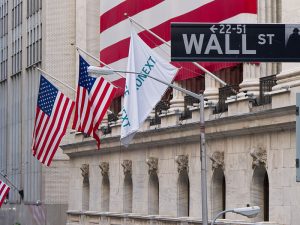Will SPACs Become The Standard IPO Route?

Special Purpose Acquisition Companies, or SPACs, have carved a niche for themselves as a modern conduit for bringing companies to the public market, bypassing the conventional initial public offering (IPO) route. Although not a novel concept, their allure has surged in recent times, offering an alternative pathway to the stock exchange spotlight.
At its core, a SPAC is an investment vehicle that goes public through its own IPO, with the primary intent of using the raised funds to acquire a private company. The allure lies in the target acquisition, whose value is anticipated to reflect positively on the SPAC’s share price post-acquisition. The recent years have seen a spike in SPAC popularity, a trend buoyed by endorsements from renowned figures. Donald Trump’s venture into social media through Truth Social and Richard Branson’s move to publicize Virgin Galactic via a SPAC stand as testament to this strategy’s appeal. Similarly, the involvement of celebrated athletes like Alex Rodriguez and Shaquille O’Neal has not only garnered attention but also captivated their substantial fanbases, paralleling the phenomenon observed with meme stocks. While such endorsements can ignite short-term investor enthusiasm, they carry the inherent risk of volatility, posing significant losses to those joining the frenzy too late.
Apart from celebrity allure, SPACs offer a streamlined and expedient alternative to the traditional, more cumbersome IPO process. This efficiency stems from their nature as empty vessel companies, which, devoid of operational complexities, face less regulatory scrutiny, facilitating a smoother public debut.
Investor profitability in SPACs hinges on timely entry and the strategic selection of target companies and management teams. High-profile engagements by Michael Bloomberg and Bill Ackman highlight the blend of expertise and quality essential for a prosperous SPAC venture. Yet, despite these promising components, SPAC investments are not immune to risks. Market downturns can indiscriminately diminish SPAC value, and shifts in regulatory landscapes could potentially destabilize this investment model. The peculiar regulatory stance that allows entities without operational business to undertake an IPO, with the promise of future acquisitions, underscores the speculative nature of these investments. The absence of a guarantee in securing a desired target amplifies this uncertainty, potentially transforming promising prospects into disillusioning outcomes.
In essence, despite their unique entry into the public market, SPACs are subject to the same fundamental market principles as traditionally IPO’d companies. Ultimately, their success and sustainability on the stock exchange depend on their ability to generate revenue, earnings, and enhance shareholder value, paralleling the expectations and scrutiny faced by all publicly traded entities. This landscape underscores the importance of diligent research and strategic foresight in navigating the enticing yet unpredictable waters of SPAC investments.
